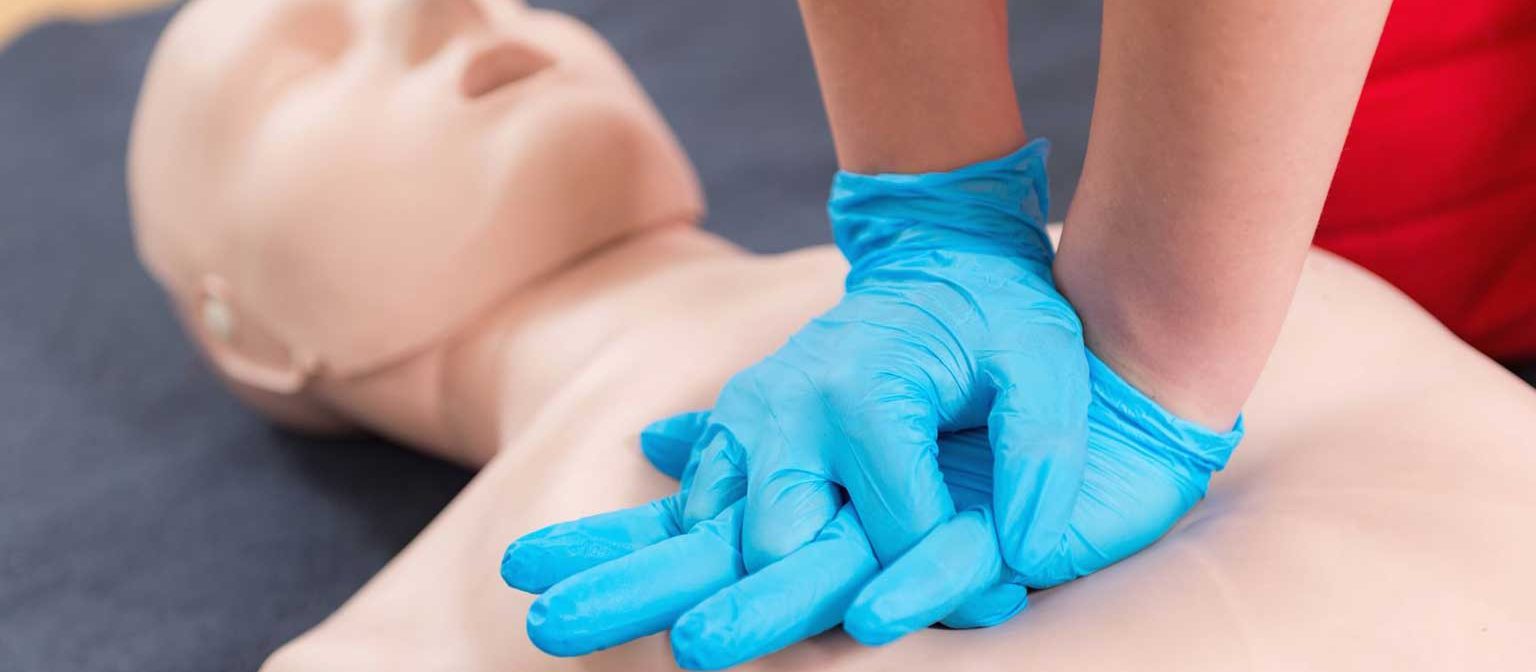In response to the increased prevalence of asymptomatic COVID-19 cases, and the increased transmission of the new variants, the First Aid Quality Partnership (FAQP) and Health and Safety Executive (HSE) supports the position of the Resuscitation Council UK that practical demonstration of rescue breaths may be omitted from first aid training courses, as a precautionary measure while COVID-19 transmission rates remain high.
Specifically:
- If a Training Provider, a Trainer, a Learner, or an Employer is concerned about the removal of a face covering in order to demonstrate rescue breaths, the learner(s) may demonstrate chest compressions only for adult resuscitation. This will not affect the validity or duration of certification, however attendance on annual refresher training is strongly recommended.
- There is good evidence that rescue breaths form an essential part of Cardiopulmonary Resuscitation particularly in children, infants and those who have drowned. The benefits of teaching rescue breaths to those who have a duty to provide first aid to these groups far outweighs the extremely small theoretical risk of transmission in the classroom whilst practising this skill. For this reason, rescue breaths should continue to be taught on paediatric first aid courses, lifeguard training, and with other groups such as emergency service workers.
- The above recommendation is temporary and will be reviewed on a regular basis. As the roll out of vaccines continues to grow at a pace and the current peak in society subsides, we intend to reintroduce the mandatory practising, performance, and assessment of rescue breaths in the classroom. We will issue further notifications when reviews take place.
Please remember:
Wearing facemasks (at all times – even when seated) is by far the most important factor in preventing transmission. Please see HSE guidance on room ventilation here, which plays a very important part of protecting against aerosolised virus.
Whilst the disruption to learners’ and centres’ activities due to COVID-19 are ongoing, we want to assure you that we are here to continue providing the support you need to meet these challenges. Please don’t’ hesitate to contact our Quality Assurance Team today, if you have further queries on these assessment adaptations, or any other guidance we can provide.





